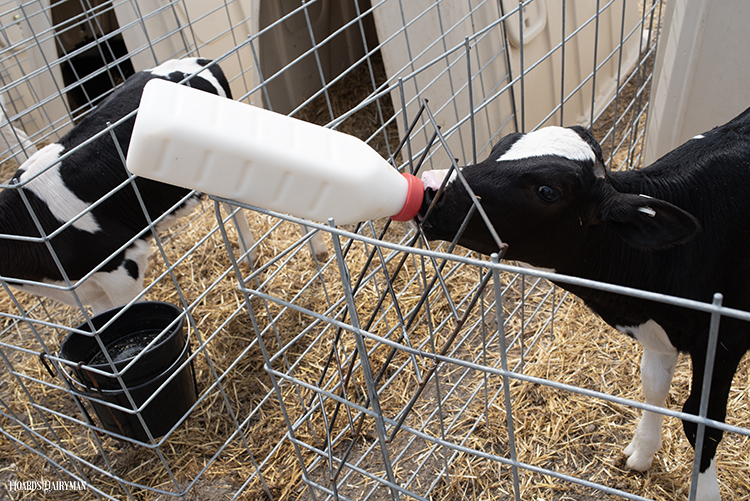
Electrolytes are often just the ticket calves need to get through a bout of diarrhea. Veterinarian Amelia Woolums recommends administering electrolytes as soon as diarrhea is identified to prevent dehydration, but it is important to remember that electrolytes are not a replacement for milk or milk replacer.
“When a calf has diarrhea, it needs electrolytes and water, but it still needs protein, energy, and fat as well,” said Woolums during an episode of the Hoard’s Dairyman “Herd It Here” podcast. She said even the best electrolytes only provide 50% of a calf’s maintenance needs, and many have much less than that. “If a calf is still interested in drinking milk, you should continue to feed milk,” the Mississippi State University professor noted.
A schedule that works well to deliver milk meals and electrolytes is to start the day with the normal milk or milk replacer feeding. Then, around lunchtime, provide electrolytes. In the late afternoon, feed another milk meal, and then in the evening, offer a bottle or bucket of electrolytes. Woolums said that a calf can utilize a similar volume of electrolytes as it receives for milk each day.
If a calf is not interested in drinking the milk by bottle or bucket, Woolums does not recommend tube feeding milk, but she said this is a decision best discussed with the herd’s veterinarian. Electrolytes can be offered by bucket or bottle or fed with an esophageal feeder, using extreme care to deliver fluids into the stomach and not the lungs.
Woolums shared that a calf receiving both milk and electrolytes will have a greater volume of manure. Some caretakers might interpret this as the diarrhea is getting worse, but Woolums assured that calves need the protein and energy from the milk. If the milk meals are not fed, the calf will start to lose weight, so continue to feed milk as long as the calf will take it.
Some may also wonder if electrolytes can be mixed into a milk meal, but Woolums said the answer is no. “Calves don’t just need the electrolyte powder; they need the extra water, too,” she explained. “A lot of water is being lost in diarrhea. These calves need the water as well as the electrolytes.”








